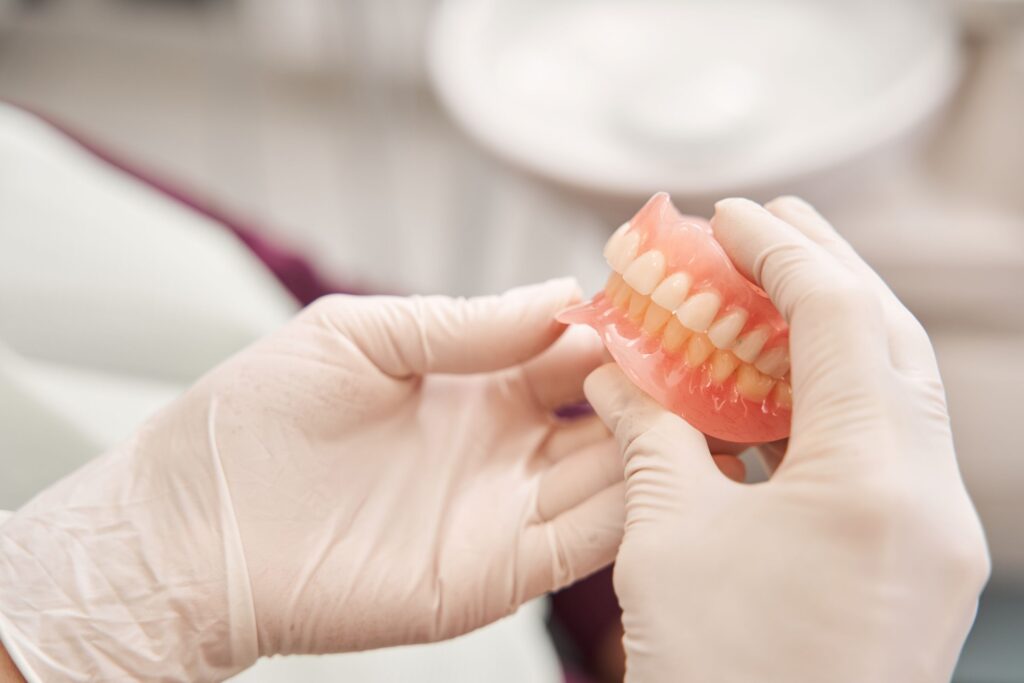
Did you know that your jaw starts thinning when teeth fall out? Your roots stimulate new bone growth every time you bite down, and when they go missing, you can potentially lose up to 25% of the surrounding bone mass within the first year.
As your jawbone weakens, the bony ridges in your mouth flatten. That’s bad news for denture wearers, who rely on these structures to remain put. If you’re tempted to try to reline your restoration at home to improve its fit, continue reading to learn why you should contact your dentist instead!
What Is Denture Relining?
Denture relining refers to the process of adding new material to the inside surface of your restoration to improve its fit in your mouth. There are generally two ways to do this, and they are:
- Soft relining. This involves adding flexible materials, like silicone, to the foundation of your teeth to improve their hold. It’s ideal for patients with sensitive gums or excessively resorbed ridges because the materials provide more cushion than the alternative to prevent sores or blisters.
- Hard relining. This involves applying harder, more durable materials to the base of your dentures for a more secure connection. This is sometimes preferred if you’ve had one or more relines already and require a more permanent solution.
Can I Reline My Own Dentures?
If you’re concerned about affording dental services, you might feel tempted to try over-the-counter solutions instead. For example, many corner stores and pharmacies carry kits containing supplies to help reline your restoration for anywhere from about $10 to $40+.
However, having all the required materials doesn’t necessarily qualify you to reline your teeth. It’s hard to see what you’re doing on your own at home, and if the added material is placed incorrectly, you might make your situation worse rather than better. Then, you’ll have to pay for your dentist’s help to correct your mistakes and/or replace your dentures.
Unfortunately, if you alter the alignment of your prosthetics, you might develop additional aches, challenges chewing, and even speech impediments because your teeth don’t come together as they should.
This can be avoided by starting with your dentist first. They’ll examine your mouth to devise an appropriate treatment plan and adjust or replace your dentures based on your unique circumstances.
If you’re unsure why your dentures feel loose or sore, contacting your dentist is the safest way to address the underlying cause while preserving your oral health!
About the Practice
Patients at Care 32 Dental of Fort Worth benefit from a team of dentists with decades of combined experience. They collaborate to provide a comprehensive menu of services at one convenient location and treat people of all ages, so you and the entire family receive the same top-quality treatments. Then, they combine a passionate approach with state-of-the-art equipment to enhance your comfort while delivering accurate results intended to last. If your dentures no longer fit and you need help, you can request an appointment on the website or call (817) 741-1300.
